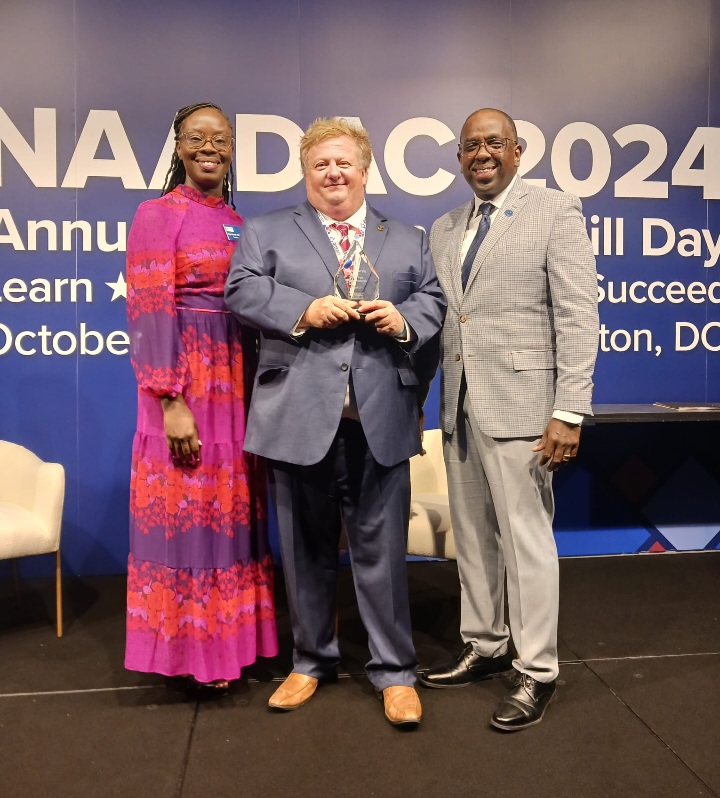
Texas Tech student pushes for expanded collegiate recovery programs
Declan Murphy, a Ph.D. candidate in the Addictive Disorders and Recovery Studies program at Texas Tech University, received a prestigious graduate scholarship award from the National Association for Alcoholism and Drug Abuse Counselors (NAADAC). NAADAC, which serves over 90,000 addiction recovery therapists, also published Murphy’s paper, “Moving Toward Recovery-Oriented Education Systems”, on its national platform.

In his paper, Murphy highlights existing research on the challenges faced by students in addiction recovery and the critical role collegiate recovery programs play in their success.
He emphasizes that higher education environments often present unique risks, with college culture heavily influenced by alcohol and substance use.
“College culture is renowned for its emphasis on alcohol, which can be a triggering environment for students in recovery,” Murphy said.
He advocates for expanding recovery-oriented systems in educational institutions, noting that only 7% of colleges and universities in the U.S. currently offer collegiate recovery programs. Texas Tech’s Center for Students in Addiction Recovery is widely recognized as a national model for such initiatives.
Receiving the scholarship provided Murphy with an invaluable platform to advocate for addiction recovery support on a national scale.
“As part of my scholarship award, I was also invited to speak with congressmen at Capitol Hill to advocate for more funding to support addiction recovery services," Murphy said. "We met with Senator [Ted] Cruz’ office and Senator [Jodey] Arrington. It was a surreal experience to be in such a setting. I took advantage of the opportunity and campaigned for more funding for the expansion of collegiate recovery programs nationally."

Murphy sees the award as a platform to drive meaningful change.
“Having my paper published on a national platform is incredibly meaningful,” he said. “I hope it will inspire more colleges and universities to support students in addiction recovery.”
Murphy’s future goals include bringing collegiate recovery programs to his home country of Ireland, where no such programs currently exist. He is also interested in continuing to explore post-traumatic growth among students in recovery.
“This award has given me further motivation and passion to continue my research career and path,” Murphy said.
Murphy stresses the importance of recognizing the resilience and success of students in recovery, a group he describes as often overlooked in higher education.
“Research tells us that this population tends to excel academically and in terms of their recovery,” Murphy said. “It is important that we change the narrative and stereotypes of addiction, one that showcases the remarkable resilience, strength, and success of this population."
Murphy highlights the critical role of institutions like Texas Tech University in supporting students in recovery.
“Colleges and universities that support this population are admirable in my view, and Texas Tech is the leader in this field,” Murphy said. “I am proud and grateful for all the support I have received here at Texas Tech and more specifically the Center for Students in Addiction Recovery.”
Through his advocacy, Murphy is helping to create a more supportive and understanding environment for students in recovery, fostering awareness and encouraging institutions to provide the resources needed for their success.
